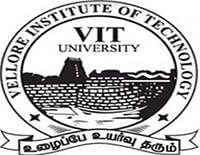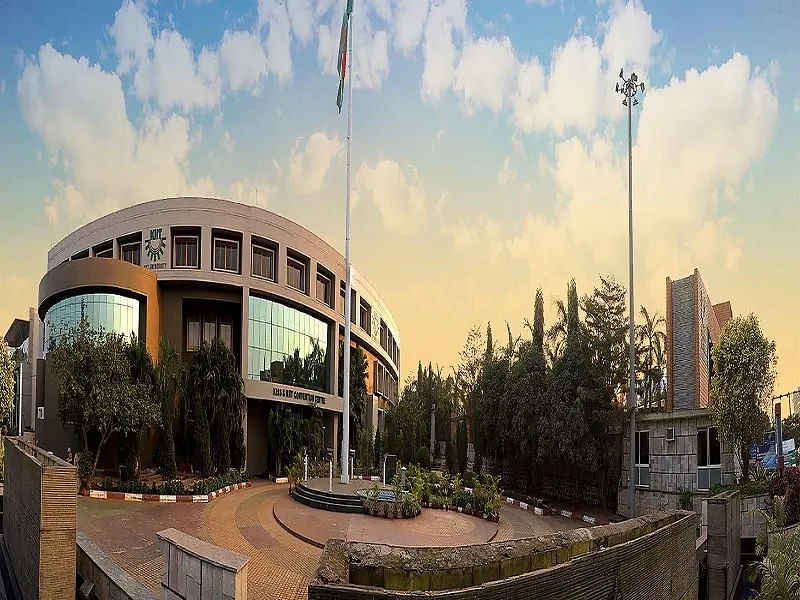B.Tech Artificial Intelligence Syllabus and Subjects

The B.Tech Artificial Intelligence subjects focus on a comprehensive understanding of the development of efficient and error-free codes, based on which a machine can perform tasks with less human interaction. The B.Tech Artificial Intelligence syllabus is divided into 8 semesters consisting of core and elective subjects, practicals/laboratory work, industrial training, projects, and seminars.
The core B.Tech Artificial Intelligence subjects include Engineering Mechanics, Data Structures and Algorithms, Artificial Intelligence, Big Data Analytics, Machine Learning, Web Technology, Deep Learning, etc. Students can also choose elective subjects such as Software Architecture, Quantum AI, Human-Computer Interface, Pattern Recognition, Cognitive Computing, etc.
The B.Tech Artificial Intelligence course helps students develop technical skills in the field of artificial intelligence, algorithms, big data analytics, machine learning, etc., and build a career as a data scientist, data engineer, software designer, data interpreter, etc.
Table of Contents
B.Tech Artificial Intelligence Subjects
B.Tech Artificial Intelligence subjects can be divided into core and elective subjects. Students are introduced to elective subjects from the third year of their degree.
Students must choose their elective BTech Artificial Intelligence subjects based on their personal interests, career scopes, or future education goals. Explore the detailed BTech Artificial Intelligence Year-wise subjects and their topics below.
B.Tech Artificial Intelligence First Year Subjects
The first year B.Tech Artificial Intelligence subjects cover foundational concepts like Newtonian Mechanics and Fluids Properties, Thermodynamics, Basics of Programming & Introduction to C, Calculus, etc.
Listed below are the BTech Artificial Intelligence subjects and the topics covered under them.
|
Subjects |
Topics Covered |
Subject Type |
|
Physics |
Newtonian Mechanics and Fluids Properties, Elasticity, Oscillations and Waves, Optics, Electricity, Magnetism, Electromagnetic Induction, etc. |
Core |
|
Chemistry |
Atomic and Molecular Structure, Spectroscopic Techniques and Applications, Intermolecular Forces and Potential Energy Surfaces, Thermodynamics, Periodic properties, etc. |
Core |
|
Basic Electrical and Electronics Engineering |
Introduction to Electronics, Transistor and OPAMP, Number System and Logic Gates, Electrical Circuits Analysis, Network theorems, etc. |
Core |
|
Fundamentals of Programming Languages |
Basics of programming & Introduction to C, The Decision controls and Control structures, Functions, Pointers and Structures, Array & strings, File Handling in C, etc. |
Core |
|
Communication Skills |
Vocabulary Building, Basic Writing Skills, Identifying Common Errors in Writing, Nature and Style of Sensible Writing, Writing Practices, etc. |
Core |
|
Mathematics |
Calculus, Sequences and Series, Multivariable Calculus, Matrices, etc. |
Core |
|
Problem Solving by Programming |
Functions and Modules, Strings, Object Oriented Programming, File Handling and Dictionaries, etc. |
Core |
|
Computational Statistics |
Basic Probability, Continuous Probability Distributions, Bivariate Distributions, Basic Statistics, Applied Statistics, etc. |
Core |
|
General Biology |
Classification, Genetics, Biomolecules, Enzymes, Metabolism, etc. |
Core |
|
Engineering Graphics and Design |
Fundamentals of Engineering Drawing, Engineering Curves, Orthographic Projection, Isometric Projection, Development of Lateral Surfaces, etc. |
Core |
|
Engineering Mechanics |
Units and Dimensions, Principle of Statics, Free body diagram Equilibrium of concurrent, Frictional Force, Kinematics of linear motion, etc. |
Core |
B.Tech Artificial Intelligence Second Year Subjects
The second year BTech Artificial Intelligence subjects explore topics like graph theory, linear data structures, software project planning & management, etc.
The B Tech Artificial Intelligence second year subjects and topics covered are detailed in the table below.
|
Subjects |
Topics Covered |
Subject Type |
|
Discrete Structure |
Sets and Propositions, Relations and Functions, Algebraic Structures, Graph Theory, Trees, etc. |
Core |
|
Data Structure and Algorithms |
Introduction to Data Structure and Algorithms, Linear Data Structures, Linear Data Structures, Advanced Data Structures, Searching & Sorting Techniques, etc. |
Core |
|
Software Engineering and Project Management |
Requirements Analysis and Design, Software Project Planning & Management, Project Scheduling, Agile Methodology, Business Continuity & Disaster Management, etc. |
Core |
|
Database Management Systems |
Introduction to Database, Data Collection, Database Design & SQL, Query Processing and Database Transactions, Concurrency Control, etc. |
Core |
|
Universal Human Values-II |
Understanding Harmony in the Human Being, Understanding Harmony in the Family and Society, Understanding Harmony in the Nature and Existence, Implications of the above Holistic Understanding of Harmony on Professional Ethics, etc. |
Core |
|
Artificial Intelligence |
Searching Techniques, Basic Probability Notation, Game Playing, Formalized & Propositional Logic, Knowledge Representation and Expert Systems, etc. |
Core |
|
Digital Logic Design and Processor Architecture |
Fundamentals of Digital Techniques & Minimization Technique, Combinational circuits, Sequential Circuits Design, Processor Architecture, Parallel Processing, etc. |
Core |
|
Computer Networks |
Basics of Networks, Physical Layer, Data Link Layer, Network Layer, Transport Layer, etc. |
Core |
|
R Programming |
Operators, variables in R, Control Statements, Data Types in R, Statistics & Data Visualization, Data and File Handling and SQL, etc. |
Core |
|
Foundations of Data Science |
Pre-processing & collection of data, Exploratory Data Analytics, Regression & Model Development, Model Evaluation Generalization, Data Visualization, etc. |
Core |
B.Tech Artificial Intelligence Third Year Subjects
The third-year B.Tech Artificial Intelligence subjects offer topics like Big Data Analytics, Machine Learning, Introduction to PHP, IoT Architecture, etc.
Listed below are the B.Tech Artificial Intelligence subjects for the third year along with their topics covered.
|
Subjects |
Topics Covered |
Subject Type |
|
Big Data Analytics |
Big Data Analytics, Hadoop, Hadoop Distributed File System & Map Reduce, Hadoop EcoSystem, The Big Data Technology Landscape & Algorithms, etc. |
Core |
|
Machine Learning |
Supervised Learning, Unsupervised Learning, Reinforcement Learning, Forecasting and Learning Theory, Neural Networks & Dimensionality Reduction, etc. |
Core |
|
Web Technology |
Introduction to PHP, HTML Common Tags, Introduction to Servlets, Introduction to JSP, Client-side Scripting, etc. |
Core |
|
Design and Analysis of Algorithm |
Models and Design, Abstract Algorithms, Complexity Theory, Amortized Analysis, Multithreaded and Distributed Algorithms, etc. |
Core |
|
System Modeling and Design |
Systems analyst & System Development cycle, System Planning, Systems Design and modeling, Modular and structured design & Object Oriented Analysis, System Implementation and Maintenance & Security, etc. |
Elective-I |
|
Internet of Medical Behaviour |
IoT Architecture, Sensors and Protocols, Privacy and Security, IoMT Introduction & Healthcare Technologies, Application Design & Case Study, etc. |
Elective-I |
|
Skill Enhancement Course-I |
Language-I: Foreign Language (French/German/Japanese)/ Hindi/ Marathi |
Core |
|
Advanced Databases |
Data Storage, Indexing Structures, Query Processing, Query Optimization, Advances in Database Systems, etc. |
Core |
|
Deep Learning |
Feedforward Networks, Deep Neural Networks, Recurrent Neural Networks, Convolutional Neural Networks & Deep Generative Models, etc. |
Core |
|
Machine Learning & Network Security |
Anomaly Detection, Malware Analysis, Network Traffic Analysis, Protecting the Consumer Web, Production Systems, etc. |
Core |
|
Information Retrieval |
Introduction and Basic IR Models, Vector-Space Retrieval & Experimental Evaluation, Query Expansion & Text Representation, Web Search, etc. |
Core |
|
Software Architecture |
Introduction to Software Architecture, Object-oriented Paradigm, Distributed Architecture, Architecture of User Interface Containers, Aspect Oriented Architectures, etc. |
Elective-II |
|
Quantum AI |
Fundamental Concepts, Feature Identification, Classification, Neural Networks, Quantum Machine Learning, etc. |
Elective-II |
|
Skill Enhancement Course-II |
Language-II: (Foreign Language (French/German/Japanese)/ Hindi/ Marathi) |
Core |
B.Tech Artificial Intelligence Fourth Year Subjects
The fourth-year B.Tech Artificial Intelligence subjects deal with concepts like Professional Ethics, Direct and Inverse Kinematics, Foundation of Cognitive Computing, Foundations of HMI, Pattern Classifier, etc.
Listed below are the B.Tech Artificial Intelligence subjects and the topics covered under them.
|
Subjects |
Topics Covered |
Subject Type |
|
Ethics and Values |
Ethical Theories, Professional Ethics, Cyber Ethics, Privacy Concerns, Social Impact of IT, etc. |
Core |
|
Robotics and Automation |
Direct and Inverse Kinematics, Manipulator differential motion and statics, Path planning, Dynamics and Control, Sensor Integration and Robot Perception, etc. |
Elective-III |
|
Cognitive Computing |
Foundation of Cognitive Computing, Design Principles for Cognitive Systems, Natural Language Processing in Support of a Cognitive System, Knowledge in Taxonomies and Ontologies, etc. |
Elective-III |
|
Skill Enhancement Course-III |
Front-end Development with HTML5, CSS3/ Javascript/ ReactJS/ Angular S |
Core |
|
Human-Computer Interface |
Foundations of HMI, Interaction Design Basics, Graphical User Interface, Screen Designing, Web User Interface, etc. |
Elective-IV |
|
Pattern Recognition |
Pattern Classifier, Unsupervised Classification, Structural pattern recognition, Feature extraction and selection, Recent Advances, etc. |
Elective-IV |
|
Skill Enhancement Course-IV |
DevOps/ Cloud (AWS/AZURE)/ Salesforce |
Core |
Semester-Wise B.Tech Artificial Intelligence Syllabus
The Artificial Intelligence subjects for the first to second year are focused on engineering fundamentals, whereas, the third to fourth-year syllabus delves into advanced topics in the field of artificial intelligence.
Listed below is the semester-wise B.Tech Artificial Intelligence syllabus:
BTech Artificial Intelligence Syllabus First Year
B.Tech Artificial Intelligence 1st year syllabus covers subjects like Physics, Fundamentals of Programming Languages, Computational Statistics, Engineering Mechanics, etc.
Below is the B.Tech Artificial Intelligence syllabus for 1st year:
|
Semester I |
Semester II |
|
Physics |
Problem Solving by Programming |
|
Chemistry |
Computational Statistics |
|
Basic Electronics and Electrical Engineering |
General Biology |
|
Fundamentals of Programming Languages |
Engineering Graphics and Design |
|
Communication Skills |
Engineering Mechanics |
|
Mathematics |
Project-Based Learning – I |
|
- |
Workshop and Manufacturing Practices - Laboratory |
B.Tech Artificial Intelligence First Year Practicals
Following are the practical subjects available under the B.Tech Artificial Intelligence 1st year syllabus:
- Physics
- Chemistry
- Basic Electronics and Electrical Engineering
- Fundamentals of Programming Languages
- Problem Solving by Programming
- Engineering Graphics and Design
- Project-Based Learning – I
- Workshop and Manufacturing Practices - Laboratory
B.Tech Artificial Intelligence Second Year Syllabus
BTech Artificial Intelligence 2nd year syllabus delves into sub-topics of fundamental topics like discrete structure, data structures and algorithms, artificial intelligence, foundations of data science, etc.
Below listed is the B.Tech Artificial Intelligence 2nd year syllabus:
|
Semester III |
Semester IV |
|
Discrete Structure |
Artificial Intelligence |
|
Data Structures and Algorithms |
Digital Logic Design and Processor Architecture |
|
Software Engineering and Project Management |
Computer Networks |
|
Database Management Systems |
R Programming |
|
Project Based Learning-II |
Foundations of Data Science |
|
Universal Human Values-II |
- |
B.Tech Artificial Intelligence Second Year Practicals
Following are the practical subjects available under the B.Tech Artificial Intelligence syllabus for 2nd year:
- Data Structures and Algorithms
- Software Engineering and Project Management
- Database Management Systems
- Project Based Learning-II
- Artificial Intelligence
- Digital Logic Design and Processor Architecture
- Computer Networks
- R Programming
- Foundations of Data Science
B.Tech Artificial Intelligence Syllabus Third Year
BTech Artificial Intelligence syllabus in 3rd year focuses on advanced topics like big data analytics, machine learning, advanced databases, deep learning, etc.
Below listed is the B.Tech Artificial Intelligence third year syllabus:
|
Semester V |
Semester VI |
|
Big Data Analytics |
Advanced Databases |
|
Machine Learning |
Deep Learning |
|
Web Technology |
Machine Learning & Network Security |
|
Design and Analysis of Algorithm |
Information Retrieval |
|
Elective-I |
Elective-II |
|
Skill Enhancement Course-I |
Skill Enhancement Course-II/ Internship |
B.Tech Artificial Intelligence Third Year Practicals
Following are the practical subjects available under the B.Tech Artificial Intelligence 3rd year syllabus:
- Big Data Analytics
- Machine Learning
- Web Technology
- Advanced Databases
- Deep Learning
- Machine Learning & Network Security
B.Tech Artificial Intelligence Fourth Year Syllabus
B.Tech Artificial Intelligence 4th year syllabus focuses more on elective subjects, skill enhancement courses, and developing practical skills through internships and preparing project work.
Below listed is the BTech Artificial Intelligence syllabus for 4h year:
|
Semester VII |
Semester VIII |
|
Ethics and Values |
Elective-IV |
|
Elective-III |
Skill Enhancement Course-IV |
|
Skill Enhancement Course-III |
Project- II/ Internship |
|
Project- I/ Internship |
- |
B.Tech Artificial Intelligence Fourth Year Practicals
Following are the practical subjects available under the B.Tech Artificial Intelligence 4th year syllabus:
- Project-I
- Project-II
BTech Artificial Intelligence Course Structure
The B.Tech Artificial Intelligence program includes a variety of core and elective courses. This course focuses on software development, application demo testing, and business informatics Applicants can choose elective courses based on their interests and preferences. B.Tech Artificial Intelligence course structure includes:
- VIII Semesters
- Core And Elective Courses
- Capstone Projects
- Real-Time Projects
- Research Papers
- Practicals
- Seminars
- Internships And Workshops
B.Tech Artificial Intelligence Teaching Methodology and Techniques
B.Tech Artificial Intelligence course focuses on hands-on experience and actual projects to help students learn how to create AI software applications and run demos. The final project encourages students to become familiar with laws and theories of physics, machine learning, software applications, mechanics, etc. In a nutshell, the teaching methodologies and techniques include:
- Lectures
- Case Studies
- Group Projects
- Company Workshops
- Internships
- Practical Sessions
- Experiential Learning
- Industrial Training
BTech Artificial Intelligence Projects
The topics of the B.Tech Artificial Intelligence project are based on workshops and seminars conducted by the university in collaboration with companies. These projects help graduates to demonstrate their skills and strategies and motivate them to engage in real-world situations.
Some popular BTech Artificial Intelligence projects are listed below:
- Predict Housing Price Applications
- Enron Investigation
- Stock Price Prediction
- Customer Recommendation
- Voice-Based Virtual Assistant For Windows
- Facial Emotion Recognition and Detection
BTech Artificial Intelligence Books
B.Tech Artificial Intelligence books help students understand concepts related to Discrete Mathematics, Database System Concepts, Artificial Intelligence, Machine Learning, Big Data, Deep Learning, etc.
The year-wise BTech Artificial Intelligence books followed by colleges across India are detailed in the sections below.
B.Tech Artificial Intelligence Books First Year
Students are advised to refer to the BTech Artificial Intelligence 1st year books listed in the table below:
|
Books |
Author |
Topics Covered |
|
Fundamentals of Physics |
D. Halliday and R. Resnik |
Measurement, Motion Along a Straight Line, Vectors, Motion in Two and Three Dimensions, Force and Motion, etc. |
|
Chemistry: Principles and Applications |
M. J. Sienko and R. A. Plane |
Chemistry and Chemical Nomenclature, Stoichiometry, Periodicity in Chemical Behavior, Internal Structure of Atoms, Molecules and Molecular Structure, etc. |
|
The Complete Reference of C |
H. Schildt |
Foundational C, The C99 Standard, The C Standard Library, Algorithms and Applications, A C Interpreter, etc. |
|
Higher Engineering Mathematics |
Ramana B.V. |
Differential and Integral Calculus, Ordinary Differential Equations, Linear Algebra and Vector Calculus, Fourier Analysis and Partial Differential Equations, Complex Analysis, etc. |
|
Engineering Drawing and Design |
Jensen, C., Helsel, J. D., Short, D. R |
Basic Drawing and Design, Fasteners, Materials, and Forming Processes, Working Drawings and Design, Power Transmissions, Special Fields of Drafting, etc. |
B.Tech Artificial Intelligence Books Second Year
The B.Tech Artificial Intelligence 2nd year books are provided in the table below for students' reference:
|
Books |
Author |
Topics Covered |
|
Discrete Mathematics and its Applications: with Combinatorics and Graph Theory |
Kenneth H. Rosen |
The Foundations: Logic and Proofs, Basic Structures: Sets, Functions, Sequences, Sums, and Matrices, Algorithms, Number Theory and Cryptography, Induction and Recursion, etc. |
|
Introduction to Programming using Python |
Y Daniel Liang |
Introduction to Computers, Programs, and Python, Elementary Programming, Mathematical Functions, Strings, and Objects, Selections, Loops, etc. |
|
Database System Concepts |
Abraham Silberschatz, Henry F. Korth, S. Sudarshan |
Relational Languages, Database Design, Application Design and Development, Big Data Analytics, Storage Management and Indexing, etc. |
|
Software Engineering |
KK. Aggarwal and Yogesh Singh |
Software Maintenance, Software Testing, Software Project Planning, Data Flow Diagrams and Context Diagrams, etc. |
|
Artificial Intelligence |
Elaine Rich, Kevin Knight |
Problems, Problem Spaces, and Search, Heuristic Search Techniques, Knowledge Representation Issues, Using Predicate Logic, Representing Logic using Rules, etc. |
B.Tech Artificial Intelligence Books Third Year
The B Tech Artificial Intelligence 3rd year books used by most of the institutions in India are provided below:
|
Books |
Author |
Topics Covered |
|
Understanding Big Data |
Chris Eaton, Dirk DeRoos, Tom Deutsch, George Lapis, Paul Zikopoulos |
Big Data, All About Hadoop, InfoSphere BigInsights: Analytics for Big Data at Rest, IBM InfoSphere Streams: Analytics for Big Data in Motion, etc. |
|
Machine Learning |
T. Mitchell |
Concept Learning and General-to-Specific Ordering, Decision Tree Learning, Artificial Neural Networks, Evaluating Hypothesis, Bayesian Learning, etc. |
|
The Complete Reference PHP |
Steven Holzner |
Essential PHP, Working with HTML Concepts, String Arrays, Creating Functions, Functions, etc. |
| Quantum Computation and Quantum Information | Michael A. Nielsen, Issac L. Chuang | Introduction to Quantum Mechanics, Introduction to Computer Science, Quantum Circuits, Quantum Search Algorithms, Quantum Computers: Physical Realization, etc. |
|
Database Management Systems |
Raghu Ramakrishnan, Johannes Gehrke |
Introduction to Database Systems, The Entity-Relationship Model, The Relational Model, Relational Algebra and Calculus, SQL: Queries, Programming, Triggers, etc. |
BTech Artificial Intelligence Books Fourth Year
Students are advised to refer to the BTech Artificial Intelligence 4th year books listed in the table below:
|
Books |
Author |
Topics Covered |
|
Professional Ethics In Engineering |
Dr V Jayakumar and Lakshmi Publications |
Human Values, Engineering Ethics, Engineering As Social Experimentation, Safety, Responsibilities And Rights, Global Issues, etc. |
|
Human-Computer Interaction |
Alan Dix, Janet Finlay, Gregory Abowd, Russell Beale |
The Human, The Computer, The Interaction, Paradigms, Interaction Design Basics, HCI in the Software Process, etc. |
|
Pattern Recognition Principles |
J.I. Tou & R.C. Gonzalez |
Decision Functions, Pattern Classification by Distance Functions, Pattern Classification by Likelihood Functions, Trainable Pattern Classifiers-The Deterministic Approach, Trainable Pattern Classifiers-The Statistical Approach, etc. |
|
Introduction to Robotics: Mechanics and Control |
John J. Craig |
Spatial Descriptions and Transformations, Manipulator Kinematics, Inverse Manipulator Kinematics, Jacobians: Velocities and Static forces, Manipulator Dynamics, etc. |
|
Cognitive Computing and Big Data Analytics |
Judith H Hurwitz, Marcia Kaufman, Adrian Bowles |
The Foundation of Cognitive Computing, Design Principles for Cognitive Systems, Natural Language Processing in Support of a Cognitive System, The Relationship Between Big Data and Cognitive Computing, Representing Knowledge in Taxonomies and Ontologies, etc. |
Top B.Tech Artificial Intelligence Colleges
Top Engineering Entrance Exams
B.Tech Artificial Intelligence Fee Structure
FAQs on B.Tech Artificial Intelligence Syllabus and Subjects
Q: How assessment is conducted in the BTech Artificial Intelligence course?
Q: What are common elective subjects in BTech Artificial Intelligence?
Q: What AI software tools are taught in B.Tech Artificial Intelligence?
Q: What topics are covered in Advanced Databases in the BTech Artificial Intelligence syllabus?
Q: Is advanced Maths included in the BTech Artificial Intelligence syllabus?
Q: Is there any specialization within the B.Tech Artificial Intelligence program?
Q: What kind of projects do students work on during their B.Tech AI course?
























